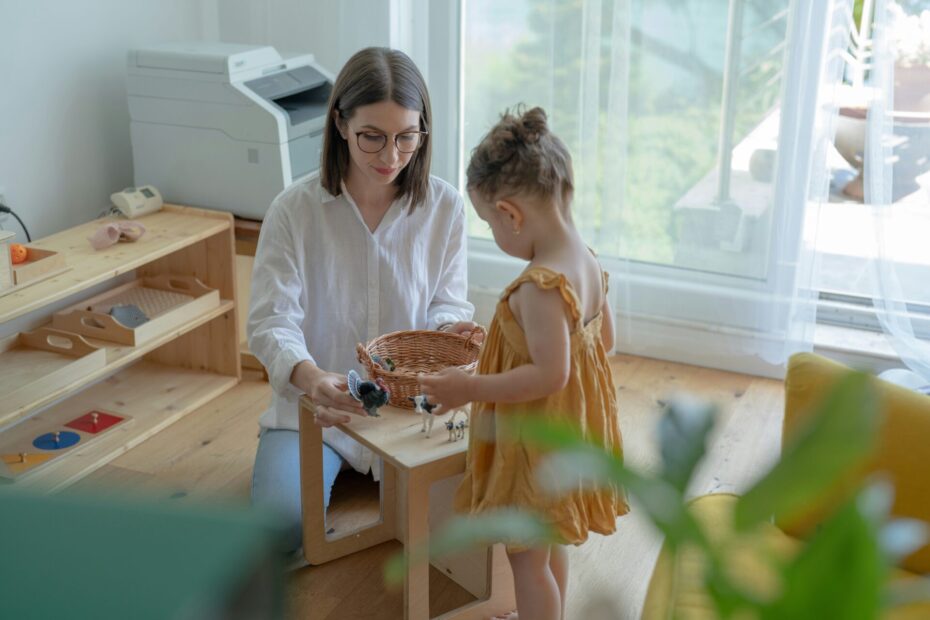As a parent, it is essential to recognize the early warning signs of development concerns in your baby. From delayed milestones to unusual behaviors, these signs can help you identify if your little one may need further evaluation or support. By being attentive and observant, you can play a crucial role in ensuring your baby’s healthy growth and development. In this article, we will explore some of the key red flags to look out for and provide guidance on seeking professional advice when needed. Keep an eye out for these signs, and let’s navigate this exciting journey of parenthood together!
Physical Development
Motor Skills
Motor skills development refers to the ability of your baby to control their muscles and perform physical movements. In the early stages, your baby will gradually gain more control over their movements, starting with simple actions such as lifting their head and gradually progressing to more complex actions like rolling over, sitting up, crawling, and eventually walking. It is important to monitor your baby’s motor skill development as any delays or significant differences in their progress may indicate a potential concern.
Growth and Weight Gain
Babies grow at a rapid pace in their first year of life. During this time, it is crucial to keep track of your baby’s growth and weight gain to ensure they are developing properly. During routine check-ups, healthcare providers will measure your baby’s height, weight, and head circumference and compare them to growth charts to track their progress. Significant deviations from the average growth patterns may be a cause for concern and should be discussed with your healthcare professional.
Vision and Hearing
Vision and hearing are vital senses that play a significant role in your baby’s overall development. In the early months, your baby’s vision is still developing, and they may have limited visual acuity. However, as they grow, their ability to focus, track moving objects, and differentiate between colors will improve. Similarly, your baby’s hearing will also undergo significant development during this time, and they will start to respond to different sounds and voices. If you notice any persistent issues with your baby’s vision or hearing, it is important to consult with a healthcare professional for further evaluation.
Cognitive Development
Language and Communication
Language and communication skills form a crucial part of your baby’s cognitive development. In the early months, your baby will start to coo, babble, and make different sounds to communicate their needs and emotions. As they progress, they will begin to understand and respond to simple words and gestures. Encouraging language development through talking, singing, and reading to your baby can greatly support their cognitive growth.
Problem-Solving Skills
Problem-solving skills are essential for your baby’s cognitive development as they learn to navigate their environment and overcome obstacles. From a young age, babies start to demonstrate problem-solving skills by figuring out how to manipulate objects, reach for toys, and explore their surroundings. As they grow, they will continue to develop these skills by engaging in more complex problem-solving tasks. Providing age-appropriate toys and activities that challenge your baby’s problem-solving abilities can stimulate their cognitive growth.
Memory
Memory plays a significant role in your baby’s cognitive development. In the early stages, your baby’s memory is centered around recognition and recall of familiar faces, voices, and objects. As they grow, their memory capacity expands, and they will start to remember and imitate actions, follow routines, and recall events from the past. Encouraging repetition and routine in your baby’s daily activities can help consolidate their memory and support their cognitive development.

Social and Emotional Development
Attachment and Bonding
Attachment and bonding are crucial aspects of your baby’s social and emotional development. From early on, babies form strong emotional connections with their caregivers, which provide them with a sense of security and trust. A healthy attachment allows your baby to develop positive relationships, regulate their emotions, and explore the world around them with confidence. It is important to provide your baby with consistent love, care, and responsiveness to foster secure attachment and promote healthy social and emotional development.
Emotional Expression
Babies express a wide range of emotions, even from the early months of life. From joy and excitement to frustration and distress, babies communicate their emotions through facial expressions, vocalizations, and body language. Observing and acknowledging your baby’s emotions, and responding with sensitivity and empathy, helps them develop emotional awareness and regulation skills. It is important to create a safe and supportive environment where your baby feels comfortable expressing their emotions.
Social Interaction
Social interaction is a critical aspect of your baby’s social and emotional development. From birth, babies are social beings and seek engagement with others. They enjoy face-to-face interactions, smiling, and making eye contact. As they grow, they will actively engage in social play, imitate actions, and show an increasing interest in interacting with their peers. Encouraging social interactions through playdates, interactive toys, and engaging activities can support your baby’s social development.
Sensory Development Concerns
Response to Stimuli
Babies’ sensory development allows them to perceive and respond to various stimuli in their environment. From a young age, babies will be drawn to bright colors, contrasting patterns, and different textures. They will start tracking moving objects with their eyes and eventually reach out to touch and explore their surroundings. Providing a stimulating environment with a variety of sensory experiences can support your baby’s sensory development.
Sensitivity to Touch
Babies are highly sensitive to touch and find comfort in being held, cuddled, and soothed. Touch plays a significant role in nurturing a baby’s emotional and physical well-being. Gentle and loving touch promotes bonding, reduces stress, and enhances your baby’s overall development. It is important to provide your baby with ample opportunities for nurturing touch through gentle massages, skin-to-skin contact, and cuddling.
Taste and Smell
Babies have a well-developed sense of taste and smell, which influences their preferences and behaviors. They may display preferences for certain flavors and exhibit aversions to others. Introducing a variety of tastes and smells through breastfeeding, formula feeding, and later, solid foods can help expand your baby’s palate and support their sensory development. It is essential to introduce new foods gradually and respect your baby’s individual tastes and preferences.

Feeding and Digestion
Appetite and Sucking
Appetite and sucking are essential for your baby’s nutrition and growth. In the early months, babies rely on breastfeeding or bottle-feeding for nourishment. It is important to pay attention to your baby’s feeding behaviors, such as their appetite, sucking patterns, and overall satisfaction after feeding. Consistent weight gain, contentment after meals, and regular wet diapers are signs of a healthy appetite and proper nutrition.
Digestive Issues
Digestive issues, such as reflux, colic, and constipation, can sometimes affect babies. These issues can cause discomfort and disrupt your baby’s feeding and digestion. If you notice persistent signs of digestive distress, such as excessive crying, spitting up, or unusually hard stools, it is important to consult with your healthcare provider. They can assess your baby’s symptoms and provide guidance on appropriate interventions or dietary changes.
Swallowing
Swallowing is an essential skill for your baby’s feeding and overall development. Babies naturally develop the ability to swallow liquid and later solid foods as they grow. It is important to introduce age-appropriate textures gradually, starting with purees and progressing to more solid foods, to support your baby’s swallowing development. If you have concerns about your baby’s swallowing abilities or notice any signs of difficulty during feeding, it is important to consult with a healthcare professional.
Sleep Patterns
Sleep Duration
Sleep plays a vital role in your baby’s growth and development. In the early months, babies sleep for varying durations throughout the day and night, often waking up for feeding and diaper changes. As they grow, their sleep patterns gradually start to consolidate, with longer stretches of sleep at night and more predictable nap times during the day. However, it is important to remember that each baby’s sleep needs and patterns are unique, and it’s essential to provide a safe and comforting sleep environment.
Difficulty Falling Asleep
Some babies may experience difficulties falling asleep or settling down for sleep. This can be due to various factors such as overtiredness, discomfort, or an inconsistent sleep routine. Establishing a soothing bedtime routine, creating a calm sleep environment, and recognizing your baby’s sleep cues can help facilitate the transition into sleep. If you are experiencing persistent challenges with your baby’s sleep, it may be beneficial to seek guidance from a healthcare professional or a sleep specialist.
Waking Up Frequently
Frequent waking during sleep is common for babies, especially in the early months. Babies have shorter sleep cycles compared to adults, causing them to wake up more frequently. However, if your baby consistently struggles to fall back asleep or has difficulty settling after waking, it may indicate a sleep issue. Consulting with a healthcare professional can help identify any underlying reasons for frequent waking and provide strategies to help your baby sleep more soundly.

Behavioral Changes
Irritability and Fussiness
Babies often express their discomfort or needs through fussiness and irritability. However, persistent and excessive irritability might be a sign of an underlying issue. Identifying potential causes of irritability, such as hunger, tiredness, discomfort, or illness, can help address your baby’s needs. If your baby’s fussiness seems unexplained or is accompanied by other concerning symptoms, it’s important to consult with a healthcare professional for further evaluation.
Unusual Repetitive Actions
Babies engage in various repetitive actions as a part of their exploration and developmental process. However, excessive or unusual repetitive actions may indicate a developmental concern. Observing your baby’s repetitive behaviors and discussing them with your healthcare provider can help determine if further evaluation is necessary.
Lack of Interest in Surroundings
Babies are naturally curious and interested in their environment. If your baby consistently seems disinterested, lacks responsiveness to stimuli, or does not engage in age-appropriate activities, it may be worth discussing with a healthcare professional. Lack of interest in surroundings could indicate developmental delays or other potential concerns.
Speech Development Concerns
Babbling and Coos
Babbling and cooing are early forms of communication that form the foundation for speech development. In the first few months, your baby will start cooing, making vowel sounds, and experimenting with different vocalizations. As they continue to grow, their babbling becomes more complex, imitating the rhythm and intonation of conversation. Encouraging your baby’s early communication attempts by responding, mimicking sounds, and engaging in interactive playtime can support their speech development.
Lack of Response to Sound
Babies’ ability to respond to sound is a crucial aspect of their speech and language development. By the second month, babies should typically startle or react to loud noises. If you notice your baby consistently failing to respond to sound or not reacting to their name being called, it may be necessary to consult with a healthcare professional for further evaluation.
Difficulty Pronouncing Words
As your baby progresses in their speech development, they will begin to imitate and attempt to pronounce words. Initially, their pronunciation may be less clear, but over time, they should be able to produce a wider range of sounds and syllables. If your baby consistently struggles to pronounce sounds or seems significantly behind their peers in speech development, it is important to consult with a healthcare professional or a speech-language pathologist for evaluation and appropriate interventions.
Motor Coordination
Grasping and Reaching
Grasping and reaching skills are essential for your baby’s motor coordination development. In the early months, your baby will start to develop their hand-eye coordination by reaching and grasping objects within their reach. As they progress, they will refine their skills, intentionally grasping and manipulating objects. Providing age-appropriate toys and opportunities for your baby to practice their grasping and reaching skills can support their motor coordination development.
Balance and Coordination
Balancing and coordination skills are essential for your baby’s physical development and eventual ability to sit, stand, and walk. In the early months, babies develop their head and neck control, followed by the ability to roll over, sit unsupported, and eventually stand with support. Encouraging tummy time, offering support during sitting and standing, and providing safe spaces for your baby to explore their balance and coordination abilities can help support their motor development.
Difficulty Sitting or Standing
If your baby consistently struggles with sitting or standing despite age-appropriate opportunities and support, it may indicate a delay or developmental concern. It is important to consult with a healthcare professional, who can assess your baby’s motor development and provide appropriate guidance or referrals for further evaluation if needed.
Social Interaction
Eye Contact
Eye contact is a fundamental aspect of social interaction and communication. From the early months, babies will start to make direct eye contact with their caregivers and attempt reciprocal gazes. Eye contact allows babies to feel connected and understood, fostering strong bonds and healthy social development. If your baby consistently avoids eye contact or seems disinterested in making eye contact, it is important to discuss this with a healthcare professional for further evaluation.
Sharing Attention
As babies grow, their ability to share attention with others develops. They will actively engage in activities that involve joint attention, such as pointing, showing objects, or directing others’ attention to specific things. Sharing attention supports social interaction, communication, and cognitive development. Encouraging interactive play, reading books together, and engaging in joint activities can promote your baby’s ability to share attention.
Lack of Response to Name
Babies typically respond to their name being called by the first year. If your baby consistently fails to respond to their name or does not appear to recognize their name, it may be important to discuss this with a healthcare professional. Lack of response to name could be an indication of hearing issues or developmental concerns.
By paying attention to your baby’s physical, cognitive, social, emotional, sensory, and speech development, you can identify any potential concerns early on. Remember, every baby develops at their own pace, but if you have any persistent concerns or notice significant delays in your baby’s development, it is important to consult with a healthcare professional for further evaluation and guidance.

